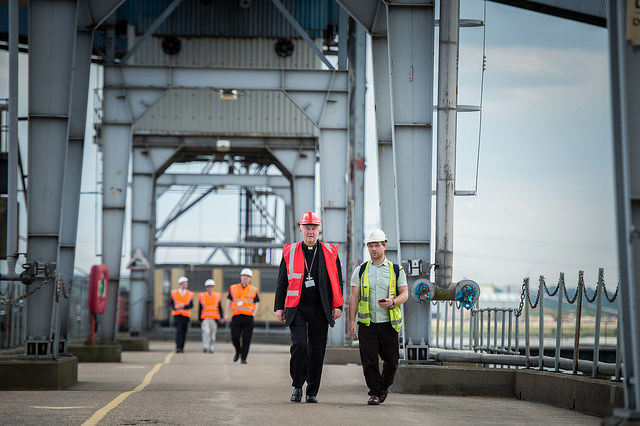All manner of goods from distant lands that are widely available in our shops and supermarkets arrive by sea. But how do those who make this abundance available for us spend Christmas? Greg Watts explains:
Most of us want to be at home at Christmas, surrounded by family and friends. But if you are a seafarer, you’re likely to find yourself in a port somewhere in a foreign land.
This only emphasises the loneliness and isolation many seafarers already experience when they are thousands of miles away from their families.
Typically, they are away at sea for 10 months at a time, often working 12 hours a day for low pay and living in cramped conditions with little in the way of creature comforts.
‘Many seafarers will spend Christmas at sea,’ says Wojciech Holub, Apostleship of the Sea (AoS) chaplain to the port of Tilbury in Essex. ‘If the port does not operate on Christmas Day, seafarers will remain on their vessels, which stay anchored in waters outside it to cut running costs.’
Like other AoS chaplains around the coast of Britain, Wojciech tries to bring the Christmas message to the ships he visits. During Advent, chaplains often take calendars and cribs with them to help seafarers prepare spiritually.
Assisted by a team of volunteers, Wojciech also makes up Christmas parcels, which might contain socks, woolly hats, chocolates, and toiletries.
‘Christmas celebrations on board a vessel can take place during Advent or in January, as ships might be in the middle of the sea on Christmas Day,’ he explains.
It is not uncommon to hear from a seafarer that he has not spent a Christmas at home for many years. Through small gestures Wojciech and other AoS chaplains in ports around the country attempt to make Christmas special for seafarers. And they know just how important these small gestures are.
Port Chaplain Wojciech Holub is pictured with Cardinal Vincent at Tilbury.
Photo: Mazur/catholicnews.org.uk




